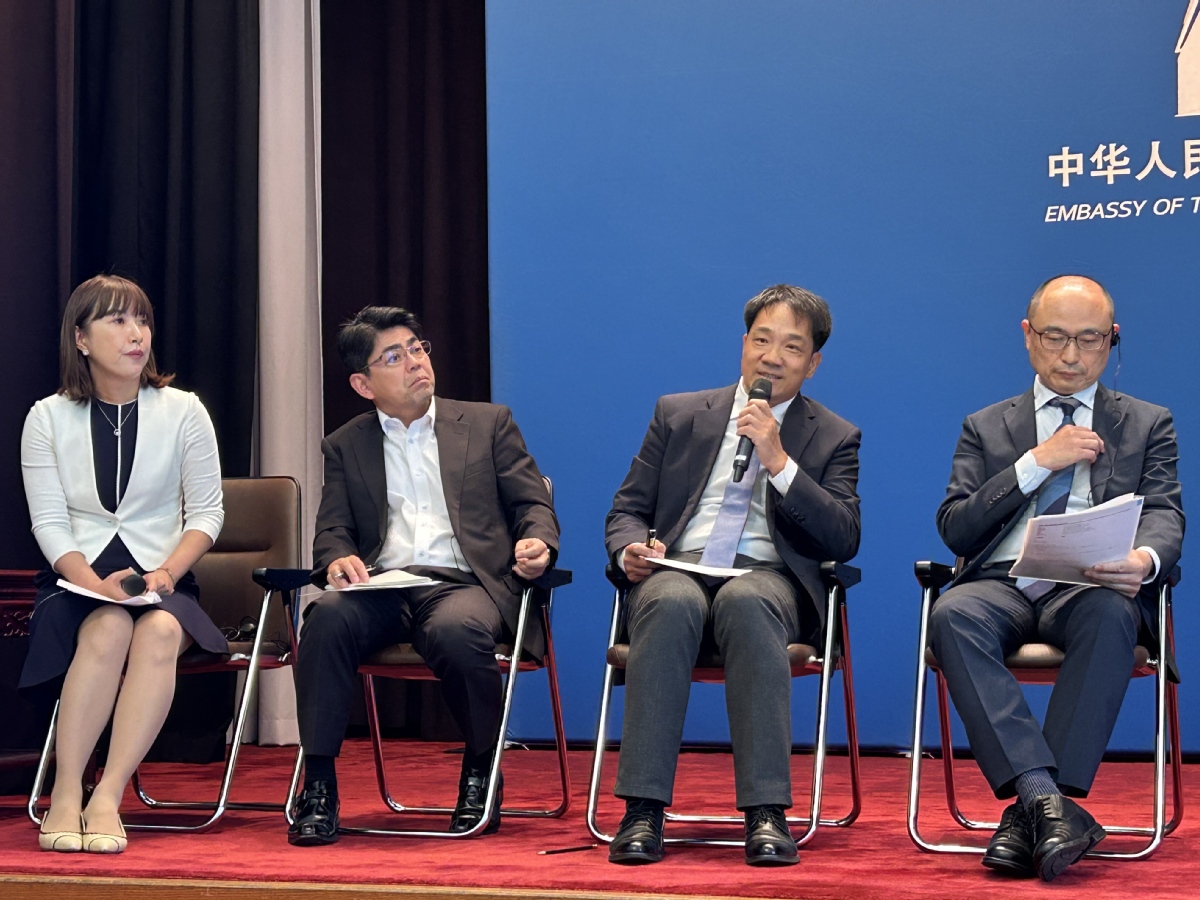Chinese diplomat highlights importance of media in bilateral relations


"Sometimes, we dislike the other side without truly knowing or understanding them. We often fall into the trap of preconceived notions and fail to see the reality — and it's these biases that give rise to negative feelings," Hisanaga said.
He urged Japanese media to portray the many facets of China from a range of perspectives in a multidimensional way.
"In Japan, coverage of China tends to focus heavily on politics, especially during periods of tension in bilateral relations. While political developments in China are certainly important from a Japanese viewpoint, they are not the whole story. If we look only at politics, we miss the broader reality of China," he explained.
Hisanaga stressed the importance of conveying a more complete image of China, so that more readers will develop genuine interest — the first step toward deeper understanding.
Takahiro Yamagami, a reporter in the foreign news section of Kyodo News, noted that while politics and economics remain core themes in international reporting by traditional media, there is still ample room to expand coverage into areas like culture and pop trends.
Yamagami expressed hope that Chinese and Japanese media would collaborate to create a bilingual news website featuring content of shared interest. Potential topics, he suggested, could include pandas, Chinese entertainment, developments in artificial intelligence, robotics, and more.
He also stressed that the younger generation holds the key to the future of China-Japan relations.
"Young people don't respond to lofty slogans. They take a more practical view: 'Is this useful to me? Is it interesting?' They're not eating Chinese food to promote China-Japan friendship," he said. "As members of the media, we should share content that positively impacts people's lives and helps the public understand how trade with China can benefit Japanese society."
Shiro Nakamura, head of the Japan Newspaper Publishers & Editors Association, called on media in both countries to make a concerted effort to understand each other's positions and perspectives and to further strengthen exchanges between journalists.
"To achieve this, reporting must be rooted in facts and conducted with sincerity and fairness. This is a step toward fostering stable bilateral relations," he said.
Naoki Makita from the International News Division of NHK's News Department acknowledged that numerous unresolved issues persist in current China-Japan relations, often reflected in negative media coverage. Social media, he noted, has become an amplifier of such negativity.
"Still, we should not allow ourselves to be swayed by the tides of public opinion," Makita said. "It's essential that we remain grounded in our journalistic principles and focus on producing coverage that fosters deeper mutual understanding between China and Japan. At the same time, we must think carefully about how to leverage social media to expand the reach of these efforts."

































